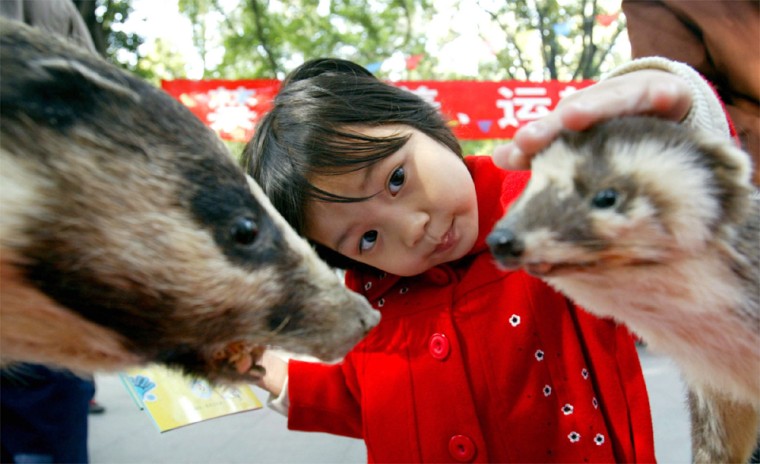Medical investigators scrutinized an apartment complex’s sewage, water and garbage systems Sunday, trying to track down the source of China’s first SARS case of the season, even as reports of another suspected victim emerged.
Meanwhile, the province of Guangdong, where the confirmed and the suspected cases are all located, turned its attention from the slaughter of civet cats — a wild animal that is eaten as a local delicacy but is thought to be a means of transmitting SARS — to eradicating a more reviled form of vermin: rats.
The new suspected case was a 35-year-old man in Guangdong, who has been isolated and hospitalized in stable condition, said Dr. Thomas Tsang, a consultant attached to the Department of Health in Hong Kong. He said officials in neighboring Guangdong had informed Hong Kong of the possible case.
The new suspected patient of severe acute respiratory syndrome does not work in a job that involves handling wild animals, which are thought to be a means of transmission for the virus, Tsang said.
But China’s Health Ministry informed the World Health Organization on Sunday night that tests so far on the man are inconclusive, WHO said. “They have not classified him as a suspected SARS case,” spokesman Bob Dietz said in Beijing.
“Press reports keep bubbling up,” Dietz said. “There’s always been a problem with case definition with SARS — actually identifying a case. So we want to understand clearly the basics that Guangdong is using.”
Contradictory information
While information about SARS cases has emerged from several different sources in recent days, the apparently contradictory information that emerged from Hong Kong and Beijing on Sunday suggested a communications gap between provincial and national health officials.
Last week, the central government announced the other suspected case, a 20-year-old waitress, who worked in a restaurant where civet cat and other wild animals were served. She has been isolated for treatment and is said to be doing well.
The only officially confirmed case of the season, a 32-year-old television producer named Luo, left the hospital last week and was pronounced recovered. He told authorities he came into contact with no wild animals, and the source of his SARS remains a mystery.
On Sunday, his apartment block in Guangzhou, Guangdong’s provincial capital, was a flurry of WHO activity as its investigators swept through, interviewing managers and looking for sources of infection in water systems, garbage facilities and living quarters. They took swab samples from stairwells and terraces, among other sites.
“Our environmental experts scoured the building,” WHO spokesman Roy Wadia said in a telephone interview from Guangzhou, Guangdong’s capital. “Based on the observations they made, the complex seemed to be managed pretty well.”
Lab samples examinedHe said WHO was working with the Guangdong Center for Disease Control to examine all data collected so far.
At the same time, experts worked to process laboratory samples taken from the restaurant where the waitress worked. WHO called Friday for more information on the waitress, saying it could help determine how she was pronounced a suspected case.
Investigators said they found no immediate conclusions about whether her job was linked to her illness. The establishment didn’t specialize in wild game but served some wildlife, including civet cats.
Thousands of civets were slaughtered in Guangdong during the past week on suspicions they could have transmitted SARS to human beings. Although the virus has been found in the weasel-like mammals, there has been no definitive proof of their status as a human vector.
Rats in 'millions of places'“Basically, most of the civet cats in Guangdong have been slaughtered,” said an official at the Guangzhou Anti-SARS Office who gave only his surname, Liu.
SARS is believed to have first appeared in Guangdong before killing 774 people worldwide and sickening more than 8,000.
The Guangzhou-based newspaper Yangcheng Evening News said on its Web site Sunday that a three-day campaign on eliminating rats was drawing more than 10,000 people. It said more than 10 tons of poison-laced grain have been deployed in “millions of places” to kill rats.
“Exercise caution in dealing with rat carcasses,” it said, quoting authorities.
Separately, the South Korean Environmental Ministry said Sunday that it has banned the import of civet cats, Chinese ferret badgers and raccoon dogs because of their possible link to SARS.
Violators face up two years in jail or a $4,200 fine, ministry officials said. No cases of SARS have been found in South Korea.
